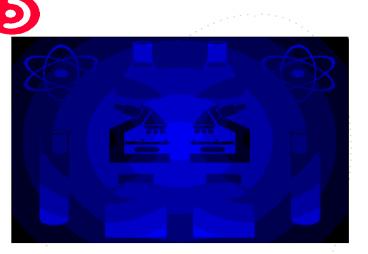ppt layout PowerPoint PPT Presentation
1 / 32
Title: ppt layout
1
(No Transcript)
2
AUDIOLOGICAL FOUNDATIONS Dr. Sharmala
Naidoo Chief Audiologist, IDF Luzern, April 1999
3
(No Transcript)
4
Research and Development
- Initial phases of specifications with Dr. Harvey
Dillon - Overall Audiology concept with Dr. Charles Berlin
- Details for Software specifications with Dr. Bob
Traynor and Sister Companies - Validation
- - Software
- - Sister companies
- - Super Users Group International (SUGI)
- - Product and Audiology concept testing on
patients - -In-house testing (Switzerland)
- -Multi-Site Clinical Field Trials
- - Dr. Ruth Bentler and Dr. Dave Fabry (USA)
- - Greg Upfold (Australia)
5
Chuck
Dave
Ruth
Harvey
6
(No Transcript)
7
GOAL Provide the customer with user-friendly
software package based on validated audiological
implementation of technologically advanced
features that will ensure user/patient
satisfaction and produce a
8
(No Transcript)
9
(No Transcript)
10
- Fitting Rationales
- Formulated on the average ear
- 1. Familiar loudness based non-linear
fitting rationales - -Fig. 6 and DSL I/O
- 2. Maximization of Speech Intelligibility
- - New NAL NL1
11
Predicting speech intelligibility
- Basic Speech Intelligibility Index (SII)
- Previously known as Articulation Index (AI)
- SII S Ai.Ii
Ai
30
1/3 octave SPL
Threshold
Frequency Harvey Dillon, 1999
12
The Speech Intelligibility Index (SII)
also known as Articulation Index (AI)
- SII audibility x importance
Harvey Dillon, 1999
13
Some details on NAL NL1Harvey Dillon, 1999
- Calculate total loudness
- Articulation Index (AI) modified
- Speech intelligibility for hearing impaired
- Corrections for losses gt 40 dB HL
- Hearing Loss Desensitization
- 52 audiograms
14
With the 52 audiograms. Harvey Dillon, 1999
- Input audiogram
- Choose an overall level of speech e.g. 40 dB SPL
- Computer manipulates gain
- Calculates overall loudness and SII
- Continues to change gain until maximal SII
- Repeat for levels from 50-90 dB SPL
- Repeat for 51 audiograms
15
Simplified by a formula Harvey Dillon, 1999
- Hearing threshold at a frequency
- Three frequency average
- Slope of audiogram
- Overall level of speech input signal
- Long formula with insertion gain at each
frequency and each speech level
16
Complicated!!
- NAL NL1 software program simplifies process
- Do not see the formula
- Bernafon special version simplifies it further
- NAL NL1 selected
- All taken care of
17
Preliminary Evidence of NAL NL1 Harvey Dillon,
1999
- NAL NL1 versus IHAFF
- Quiet
- - 10 prefer NAL NL1
- - 5 no preference
- Noise
- 12 prefer NAL NL1
- 5 have no preference
- Higher speech intelligibility with flat losses
18
Average based rationales..
- Loudness and speech intelligibility rationales
are based on average data - Rationales used as a starting point
- Fine tuning conducted to focus on the patient
- What about the individuals unique properties of
the ear and hearing?
19
- What about individualizing the fitting
rationales to the patients ear ? - take into account
- dimensions of the ear
- hearing aid shell
- hearing aid acoustics
20
Individualizing the fitting.
- Built in Sine Generator
- Verification of comfort and loudness
- Simplified method
- Quick and easy
- Decrease fine tuning
- Decrease return visits
- Patients Benefit from the verification
21
BENEFIT!
- Verification
- ensure comfort for moderate sounds
- appropriate maximum power output when hearing aid
is in saturation
22
Implementation into SoftwareRoger Weber
- Programming stages of the Alpha version
- Preliminary sample
- Testing
- Bern
- Sisters
- SUGI
- Field Trials
23
(No Transcript)
24
(No Transcript)
25
(No Transcript)
26
(No Transcript)
27
????????
28
(No Transcript)
29
Summary
- Enhanced sound quality, comfort, and clarity.
- Familiar loudness based fitting rationales of
Fig.6 and DSL I/O. - Improved speech intelligibility through the new
NALNL1 fitting rationale. - Personalized verification of comfort and loudness
judgements through BENEFIT. - Decreased feedback in most situation.
30
Summary continued.
- Optimal performance in various listening
environments through the access of multiple
memories. - Closer match of target responses through the use
of a flexible five band movable equalization
filter. - Quick fitting sessions made possible through a
user-friendly software interface.
31
Summary continued...
- Many new features
- Validation through tests on patients
- at Bernafon in Switzerland
- International clinical field trials in Australia
and USA - Provide us with case studies and much more.
32
(No Transcript)

